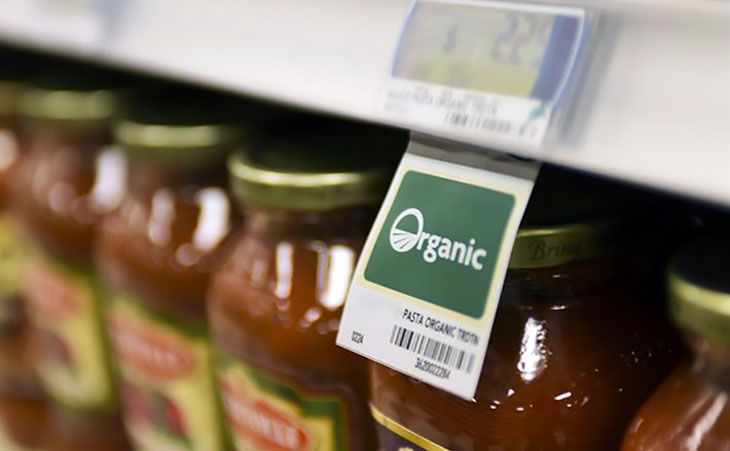Organic Growing Myths & Mistakes

An “Organic” label means it’s organic. Just because something is grown without pesticides does not mean it’s legitimately organic. For food manufacturers to label their items as organic, the products must meet USDA standards, which demands that the item is “protecting natural resources, conserving biodiversity, and using only approved substances.” It will also carry the USDA Organic seal. In the U.S. and Canada, any food labeled as “organic” must be GMO-free.
Organic pesticides are non-toxic. While organic pesticides are devoid of synthetic chemicals, they can still be toxic if handled improperly. For example, pyrethrum is made from mums, which can be a severe skin irritant for some people. Sprays made with nicotine, warfarin and rotenone can all be harmful to pets and humans to varying degrees. Some organic pesticides are repellents and can even be harmful to bees — like neem oil and garlic concoctions. Always read the label and follow the directions, especially the cautionary statements. Organic fertilizers and pesticides are largely safe, but not in every application and on every occasion. Safe storage is also key to preventing a pet or child from consuming a product that could potentially be harmful.
Because organic fertilizers have lower N-P-K numbers on the package, more should be applied. Organic fertilizers are made from different ingredients than synthetic fertilizers, and are meant to be used more sparingly. For example, applying too much nitrogen (the “N” number) will creaate too much leaf/green growth and direct focus away from fruit production. Fertilizers, both organic and chemical, are scientifically tested to develop the right application amounts, so always follow the package directions. Failing to do so could actually damage or kill the tree/plant.
Organic gardening costs a lot more than traditional gardening. This myth likely arises from the difference in price between “regular” produce and organic produce at the supermarket. An organic garden is no more expensive to grow and maintain than a conventional garden, and depending upon the products you choose, can cost considerably less. Commercially-produced pesticides, herbicides and plant food are expensive, and are becoming more so. If you take a few minutes each day (or even every few days) to maintain a balanced compost pile, you’ll save a considerable amount of money on fertilizer – the “ingredients” from your kitchen, yard waste and garden weeding are free. Save spray bottles and fill them with “home remedies” of hot-pepper water and dish soap to serve as an insect and rodent repellent. By using open-pollinated seeds, you can save seeds from this year to plant next year. There are dozens of ways to have a thriving organic garden without spending a small fortune.
Tilling your garden every year improves the soil. Even large-scale farmers are coming around to realize the damage this centuries-old practice does to the health of the soil. Abandoning the yearly tilling ritual accomplishes a few things: you’ll save a lot of muscle aches; you’ll save money on gas and 2-cycle oil; and, most importantly, you’ll save your soil’s ecosystem from being disrupted on an annual basis. Allowing beneficial microorganisms and fungi to freely colonize feeds your soil, which feeds your plants and trees. Let it be.
Composted manure is great for your garden. It is if it comes from an organic farm, that’s true — but if it doesn’t, beware. Conventional farmers use persistent herbicides to keep weeds and invasive species at bay, and those herbicides make their way into the hay, then the cow and then its manure. Commercially-produced composted manure can actually harm your garden, and may be at the root of many an unsolved plant death.
A cold-hardy fruit tree will eventually adapt to a warmer growing zone. Not only will you have wasted your money, you will be frustrated, disappointed and may even give up on fruit-growing. Cold-hardy fruit trees will languish in a warm climate, and will not produce fruit because there are not enough chill hours to complete the fruiting cycle. Always choose fruit trees that are suited for your growing zone. Your tree will be happier, and so will you.



